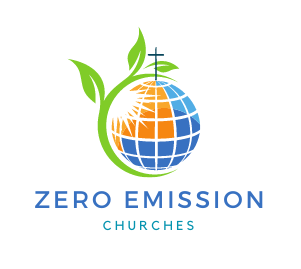Montréal Anglicans head for Zero by 2030!
Motion to Synod
As a practical response to the ongoing Climate Emergency, the Diocese of Montréal commits to reducing the greenhouse gas emissions from heating and cooling its buildings to as close to zero as possible, as rapidly as possible, and by 2030 at the latest.
This motion at the Anglican Diocese of Montréal’s annual Synod (a kind of decisional annual assembly) passed with near unanimity at its meeting on June 18.
The motion, brought by the diocesan Stewardship of the Environment Committee, went on to empower the committee to gather data on the heating systems used by the approximately 55 congregations in the diocese, and to present a plan for realizing this ambitious goal.
The task is made much easier by the fact that electricity in Québec is the lowest in the country ($0.08-0.09 per kWh), but made harder by the fact that temperatures regularly hit -25C or lower in the winter.
The Church of England (Anglican) has committed to being Net Zero by 2030 (planning to buy off-sets for about 10% of their heating energy, and making the rest carbon neutral), and the Episcopal Church in the United States last year committed the church to carbon neutrality in all its facilities and operations by 2030. The United Church of Canada has a goal of reducing its emissions by 80% by 2030, and their early hard work inspired our initiative.
In Québec, large provincial grants are available to help congregations with fuel oil furnaces. The rising carbon tax, high and volatile fossil fuel prices, and the efficiency of air source and geothermal heat pumps are all encouraging churches make the transition. Because Québec churches can usually save money by converting to heat pumps, the cost can be covered in a few years, and sometimes Anglican parishes can borrow the capital costs from their diocese.
Setting a policy like this at a diocesan level created broad awareness and encouraged discussion and creativity. One trusted contractor contacted the committee immediately, and asked, “What do you mean by zero emissions? We have only been aiming to reduce the use of natural gas.”
That question led to a creative project pulling in experts from across the country to find ways to meet the heating needs of large, poorly-insulated buildings on extremely cold days when heat pumps can’t (yet) produce enough heat, and electricity is at its highest price. Solutions are already coming to the fore!
Already, basic data has been collected on the heating sources of 32 congregations, with data being solicited from 15 more. (Another 11 are small and seldom used, or up for sale, and are not being addressed at this point).
This policy decision by the Diocese of Montréal moves it into the forefront in climate leadership in Canada, as it demonstrates workable solutions for its own buildings. This then permits it to encourage its membership to take similar action, and invite them to speak to their neighbours, showing them how to stop polluting with practical care for God’s creation.
Contact Zero Emission Churches to find out how to get your diocese involved and to make change happen more quickly.
